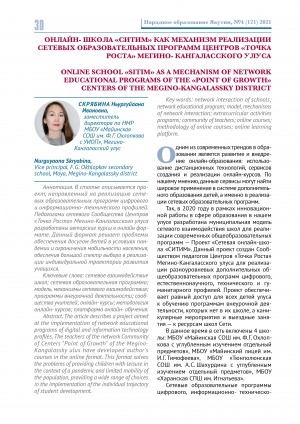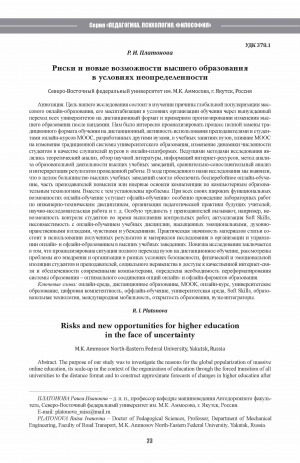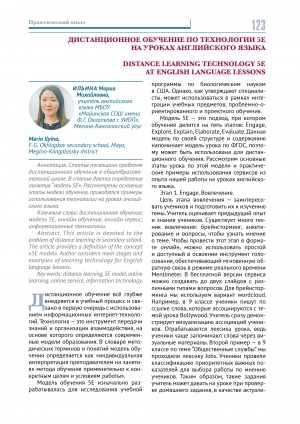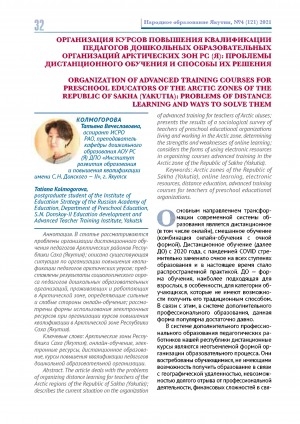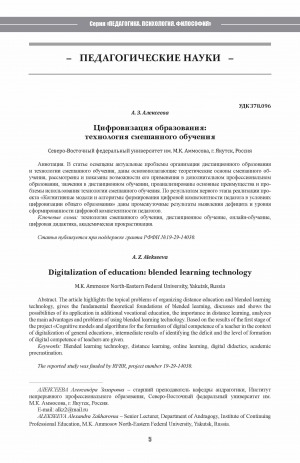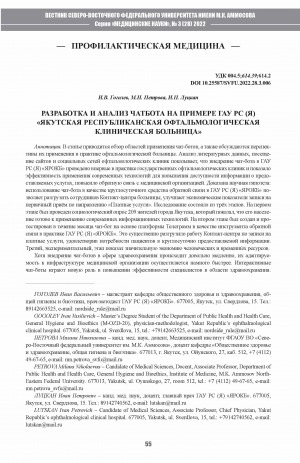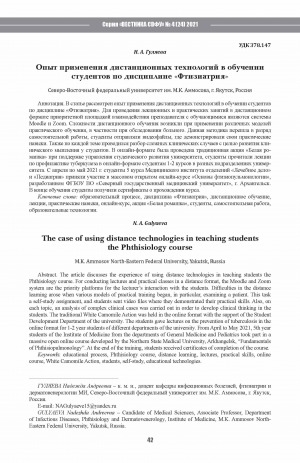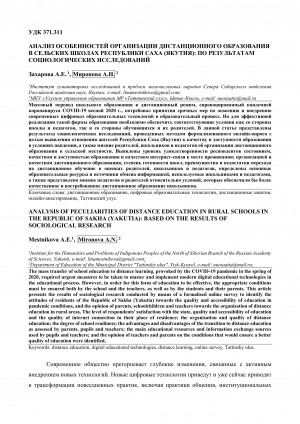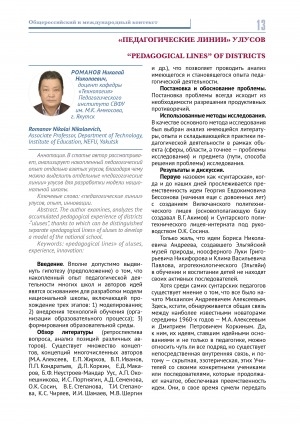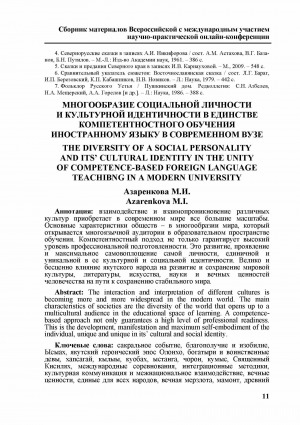В статье представлены результаты исследования, проведенного с целью выявления опыта обучения на онлайн курсах не только в стенах ВУЗа и что больше всего привлекает студентов в них. Сегодня существует множество образовательных платформ и предложений на рынке дистанционных курсов и там представлены не только ВУЗы и ССУЗы. У студентов открылись возможности широкого выбора онлайн курсов, для выявления какой они делают выбор и что их привлекает был проведен онлайн опрос (n-606) в Северо-Восточном Федеральном Университете (СВФУ). Результаты проведенного исследования показывают, что у большинства есть опыт прохождения онлайн курсов, и это в основном гуманитарного профиля подготовки опрошенные студенты. Доля, попавших в выборку студентов (10 %) имеет опыт обучения онлайн курсов других ВУЗов РФ и зарубежья. В оценке привлекательности онлайн обучения по признаку пола респондентов не было существенных различий. Была отмечена "гибкость времени" в прохождении онлайн курсов (35,7 %) притом, эта сторона наиболее привлекательна для опрошенных студентов первого и второго курсов. Ответы на вопросы - "продолжительность лекций не такое длительное" (11,0 %) и "возможность отключить, если лекция не понравилась" (7,3 %), видимо, можно отнести к "экономии" времени. Возможность "вернуться" и повторно послушать, если что-то непонятно (25,1 %) и что такие лекции "имеют разные ссылки, куда можно заходить и смотреть" (20,8 %) также были отмечены как привлекательная сторона. Дальнейшее развитие онлайн образования может повысить качество образования (45,5 %), расширить свободу выбора студентами онлайн-курсов (20,8 %).
The article presents the results of a study conducted to identify the experience of learning in online courses that comes apart from universities as well as what most attracts students to online courses. Today, there are many educational platforms and programs related to online learning; universities and colleges are now not the only source of online studies. Students have a wide choice of online courses, and in order to indicate what they choose and what affects their choice, an online survey (n-606) was conducted at the North-Eastern Federal University (NEFU). The results of the study show that the majority of respondents have experience of taking online courses, and those were mostly students of humanitarian profile. The proportion of students included in the sample (10 %) has experience in learning via online courses in other universities in the Russian Federation and abroad. There were no significant differences in assessing the attractiveness of online learning based on the gender of the respondents. The "time flexibility" in taking online courses was noted (35.7 %), moreover, the "time flexibility" is most attractive attribute for the first and second year students surveyed. Respondents’ answers to the question why they consider the "time flexibility" parameter attractive: "the duration of lectures is not so long" (11.0 %) and "the ability to turn off if the lecture is not liked" (7.3 %), apparently, can be attributed to the time savers. Other parameters were noted as attractive: the ability to "go back" and listen again if something is not clear (25.1 %); and for this type of lectures "you have different links where you can go and watch" (20.8 %). Further development of online education may improve the quality of education (45.5 %), expand the students’ freedom of choose when considering online courses (20.8 %).


